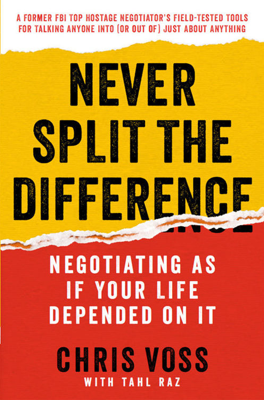The New Rules
Introduction to Negotiation Strategy
Chris Voss, a former FBI lead international kidnapping negotiator, illustrates his refined negotiating techniques, emphasizing practical applications beyond law enforcement. His approach, enhanced by experience and his time at Harvard, adapts tactics used in high-stakes kidnappings to everyday professional and personal conflict resolution, showing that negotiation is an integral part of daily life.
Key Concepts Introduced
- Tactical Empathy: Described by Voss as listening as a martial art, it is about understanding the counterpart's emotions and perspectives to navigate negotiations effectively.
- Active Listening: A skill crucial for making the counterpart feel heard and understood, paving the way for gathering information and influencing behavior.
- The Importance of "No": Contrary to seeking a quick "yes", fostering an environment where the other party feels safe to say "no" leads to more honest and productive negotiations.
- Calibrated Questions: These are open-ended questions that help the negotiator steer the conversation without aggression and elicit useful information for negotiation outcomes.
Strategies and Tactics for Effective Negotiation
- The Use of Mirroring and Labeling: Techniques like mirroring (repeating back what the other person says) and labeling emotions help in developing rapport and understanding the underlying issues better.
- Avoiding Assumptions: Voss emphasizes the importance of approaching negotiations without assumptions to stay open to actual needs and interests of the counterpart.
- Navigating Difficult Negotiations: Tactical approaches to defuse tensions and drive negotiations, focusing not just on logical problem-solving but understanding emotional underpinnings.
- Bending Reality and Setting Ranges: Influencing perceptions of fairness and the reality of the negotiation context to shape outcomes favorably.
The Impact of Negotiation in Everyday Life
Negotiation is portrayed not just as a tool for resolving hostage crises but as a fundamental skill that impacts various aspects of life including business deals, personal relationships, and everyday conflicts. Voss advocates for recognizing negotiation as an everyday tool for better understanding and influencing the world around us.
Theoretical Background
Voss critiques traditional negotiation theories from Harvard that emphasize rational problem-solving, suggesting that they fall short without considering human emotion and irrationality. He highlights the shift towards integrating psychological insights and emotional intelligence into negotiation strategies by the FBI, spurred by real-world needs and crisis situations.
Conclusion
The chapter emphasizes negotiation as a pervasive and critical skill, integral to both personal and professional domains. Voss aims to equip readers with the tools not only to succeed in negotiations but to transform their approach to conflicts and interactions.
